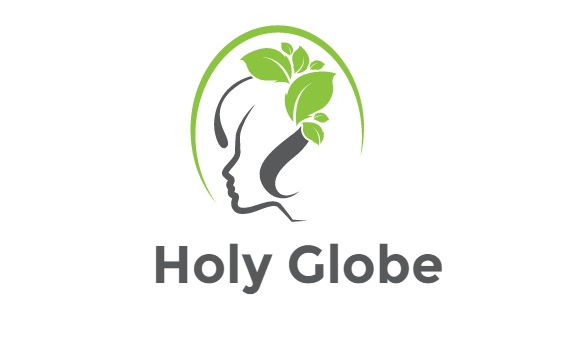
What was the loveliest thing somebody has ever stated to you? Take a minute and review that experience. What do you see? How do you feel? It could have been just one sentenced – one single sentenced that changed you for a moment, or perhaps even a lifetime.
There is more to our language than rigorous grammar and spelling. There is a real power to it; magic even. Our language dances with our creativities. It produces an extraordinary series of feelings and sensations, which quite often make the distinction between someone loving their life and sabotaging it.
In my early twenties I was an extremely competitive martial artist. It was my fascination. After college my plan was to move to Thailand for a year to train in Muay Thai, or Thai Boxing, then return house and continue completing. Two months into my plan I was seriously injured. In all of my testosterone-fueled sparkle I kept practicing, the injury worsened, and I ended up having surgery. The physician was extremely clear with his message: “Your career as a fighter is over.”
I invested the next eight months miserable, bitter, and on a bar stool. I lost my sense of humor (an extremely strange experience) and viewed myself get increasingly more antisocial. Eventually it struck me that I might wind up living that way forever. I took a hard look down that road, saw the path and destination and gave myself the shivers. Because moment I made the decision to alter my mind set – and my story. Prior to I could change the way I felt about my life I needed to understand more about the process.
ABRACADABRA

When I state ABRACADABRA what do you instantly think about?
I was having supper with good friends in Ecuador numerous years ago when one of the men at the table said, “Hey Mark, do you know what abracadabra means?” I responded, “magic”. He said, “No, no it doesn’t”. He then informed me the real story: “Abracadabra is Aramaic. Aramaic is the language the initial Old Testimony was written in and is among the two languages Jesus spoke. Abracadabra suggests ‘with my word I develop’ or ‘with my word I affect.’ They had so much regard for this sacred mentor that they would triangulate Abracadabra and use it around their necks to remind them of the power of the spoken word.” I was speechless.
“Have an excellent attitude”
Have you ever got the guidance, “Have a good mindset” or “Just try to be more favorable”? That is often the depth and level of directions most of us get for establishing our characters and state of mind. There is, naturally, more to it than that.
The words we speak to other people and the ideas we hear in our minds, add up and develop our personal stories. Those stories ultimately shape and produce our realities. Words to stories, stories to realities. This is the power of language.
I had a girl pertained to see me due to the fact that she had body image issues. We started speaking about how she was feeling and about the language patterns she was mired in. After digging a little deeper we identified something I call a “story seed occasion”.
Every Christmas her whole household would get together, celebrate and exchange gifts. She opened one of her presents (a tee shirt) and held it up for everyone to see. Laughter erupted instantly (specifically from her mean-spirited auntie who gave it to her). She took a look at the front of the t-shirt and saw a plump animation cat with the words, “I am not fat, I am simply huge boned” next to its head. She dropped the t-shirt and lacked the space crying.
Those words, “I am not fat. I am simply huge boned,” ended up being scorched into her mind. Eventually the words turned into life-defining stories. Life-defining stories became her truth. Such is the power of language.
The Power of Language Patterns
Words: “I am not fat, I am simply huge boned.”
Stories: “I dislike my body. I require to work out a lot more. Then absolutely nothing actually ever works for me. Perhaps there is a new diet plan I can try. What if that doesn’t work either? Why do other ladies have it so much simpler? I dislike my body.”
Truth: Body image issues/ Eating disorders
Another client’s mother repeatedly told him when he was young, “You’re not God’s gift to women” (Thanks for that a person, Mama). He thought her, saw himself as inferior, and produced a complex about it. Another example of the power of language to affect our reality.
Words: “You’re not God’s present to women.”
Stories: “I am such a loser. How could someone truly like me? What can I do to make individuals like me? But I’ll never ever have the ability to keep them.”
Reality: Low self-confidence, Depression
Words to Stories. Stories to Truths.
Get Into Dispute Language
Over the past ten years I have coached many people from all around the world. Individuals from all walks of life, spanning a wide range of social and economic backgrounds. Each of my customers’ stories are distinct, yet there are similar patterns to them that hint at the immense power of language. Patterns in the way they were informing their stories. Patterns in their option of words. Patterns in their language.
“Words to Stories. Stories to Realities.”
The more I focused in on what they were saying, line by line, the more dots I connected. Much so I could expect how the person would explain what occurred before they in fact did. Here’s a few examples:
“I don’t want to always feel like such a failure.”
“She won’t let me do what I truly want to do.”
” Possibly I could put in some more effort at work.”
At Procabulary, we call this kind of speech Dispute Language– a language unintentionally created to ward off objectives, sabotage relationships and puzzle ourselves into unneeded pain.
Translations and Designer Language
So what do we make with Conflict Language and Conflict Stories? Initially we determine the key Dispute Language words and begin making modifications. We call these modifications “Translations.”.
With difficult sentences like “I do not wish to constantly feel like such a failure”, we replace the “do not” with a “do” and move away from the unwanted result and towards what we desire. “I don’t want to constantly seem like such a failure” turns into “I do want to feel protected and effective.” This relatively basic translation does a tremendous amount for someone’s psychological and emotional well-being by harnessing the power of language.
“She won’t let me do what I really want to do” equates into “I will not let me do what I really want to do”. It turns out I do have some power in this circumstance. Oops.
“Maybe I might put in some more effort at work”. Get the “possibly”, “might”, and “some” and we are entrusted a much more strong statement. “I can put in more effort in work.” It’s either consideration and procrastination or decisiveness and action.
The opposite of Dispute Language is Designer Language that assists individuals concentrate on their goals and positive outcomes, advises them that they are in control of their individual stories, while helping them to be more protected and confident in their choice making process. This is a favorable use of the power of language.
If you spend even a very little quantity of time concentrating on the specific words individuals use to complain, blame, and skirt problems you will capture the Dispute Language. It’s an interesting research study. You will likewise likely find some Dispute Language in your own vocabulary too.
Bonus offer Workout: “Must Detox”
“Should” is an extremely intriguing word. It’s popular for its ability to create excess pressure and guilt. Think about doing a Must Detox to move start favorably utilizing the power of your language:
STEP 1. Pick something simple that you wish to do more of in your daily life. Something that you could easily regret or tension yourself about. It could be meditating, working out, changing your diet or taking singing lessons.
For this example we’ll utilize meditating, “I must practice meditation more.”
“I need to meditate more.” Time out and observe. How does it feel to state that? Make a mental note.
ACTION 2. Replace “ought to” with “might”.
“I might practice meditation more.” Most people raise their eyebrows and nod their head a little with the “might” sentence.
ACTION 3. Change “could” with “can”.
“I can practice meditation more.” This is generally a concrete leap in attitude and energy.
ACTION 4. Replace “can” with “fired up to”.
“I am thrilled to meditate more.” By now many people are smiling and considering when they can get in a session.
ACTION 5. And lastly we add a “because” on the end of the sentence for factors and an additional inspirational boost to actually use the power of language.
“I am thrilled to meditate more since when I do I am much more relaxed and focused.”
Now it’s your turn. It’s fun.
I should ____________________ more. Pause and observe
I could ____________________ more. Pause and observe
I can ____________________ more. Time out and observe
I am excited to ____________________ more. Pause and observe
I am thrilled to ____________________ more due to the fact that _____________ (factor) _____________. Time out and observe
This is a fantastic exercise to take advantage of the power of language and go from reluctance and regret to enthusiasm and action. It’s likewise a great drill to show the imaginative, psychological, and physiological results of the power that language has on all of us. “Should” to “could”? “Might” to “can”. “Can” to “excite to”. Add a “because”. Basic and effective.
Just the Start
Procabulary gives us an edge through the power of language. An edge over the apparently minor ideas that can, and typically do, add up to big issues. Muhammad Ali has an excellent quote about this, “It’s not the mountain that we climb that uses us out. It’s the pebble in our shoe.”
“It’s not the mountain that we climb up that uses us out. It’s the pebble in our shoe.”
Those pebbles in our shoes are made from Dispute Language. Many instances of “do not”, “can’t”, and “have not”; constantly quiting our power by blaming others and unrelenting indecision. These things trigger epic quantities of pain for ourselves, our enjoyed ones and the world around us.
If you have old patterns and feelings that you would love to equate into something favorable and empowering, then check out Procabulary’s Core Language Upgrade online training course. It’s jam-packed loaded with details, techniques and examples that will assist you equate any conflict story like a designer. Our consumers like it therefore will you.
.
Facebook Comments
